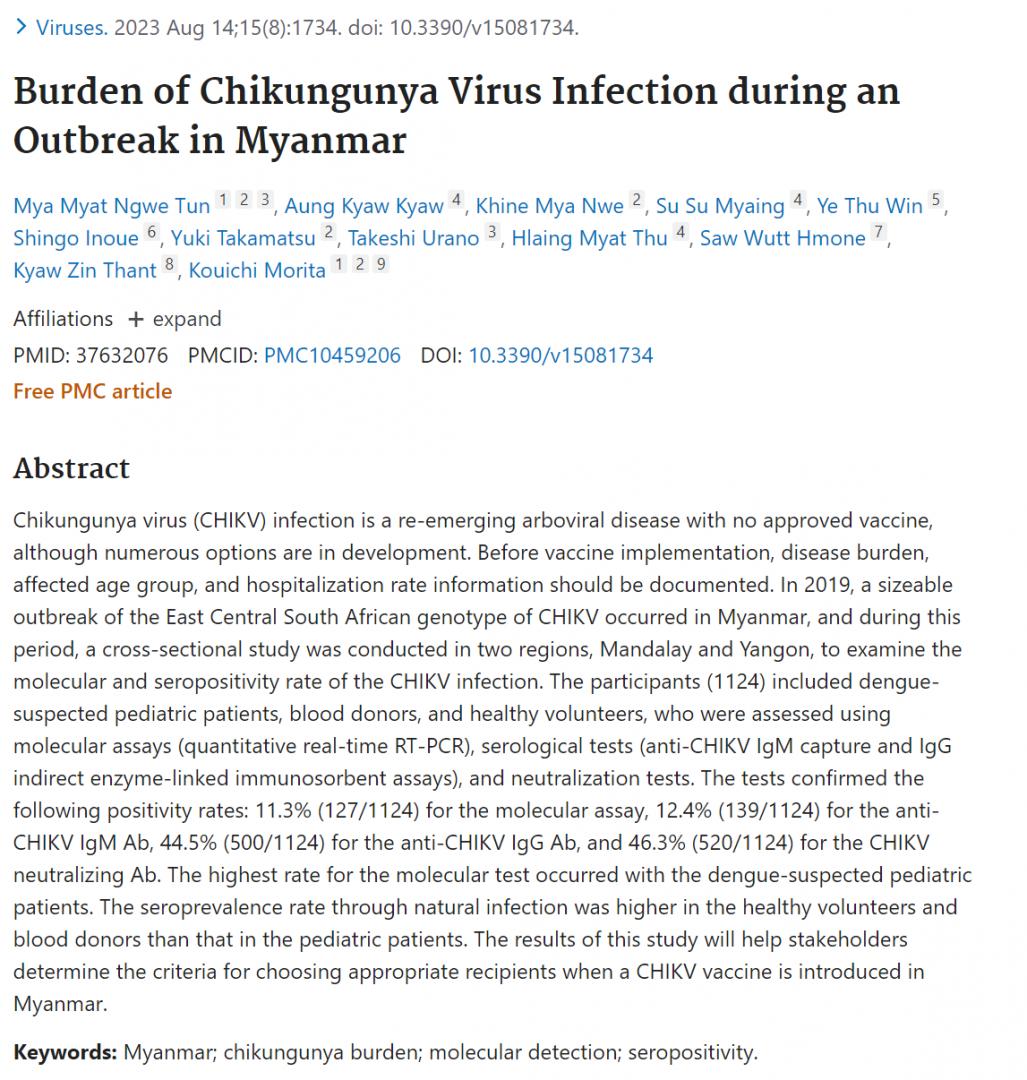

Chikungunya virus (CHIKV) infection is a re-emerging arboviral disease with no approved vaccine, although numerous options are in development. Before vaccine implementation, disease burden, affected age group, and hospitalization rate information should be documented. In 2019, a sizeable outbreak of the East Central South African genotype of CHIKV occurred in Myanmar, and during this period, a cross-sectional study was conducted in two regions, Mandalay and Yangon, to examine the molecular and seropositivity rate of the CHIKV infection. The participants (1124) included dengue-suspected pediatric patients, blood donors, and healthy volunteers, who were assessed using molecular assays (quantitative real-time RT-PCR), serological tests (anti-CHIKV IgM capture and IgG indirect enzyme-linked immunosorbent assays), and neutralization tests. The tests confirmed the following positivity rates: 11.3% (127/1124) for the molecular assay, 12.4% (139/1124) for the anti-CHIKV IgM Ab, 44.5% (500/1124) for the anti-CHIKV IgG Ab, and 46.3% (520/1124) for the CHIKV neutralizing Ab. The highest rate for the molecular test occurred with the dengue-suspected pediatric patients. The seroprevalence rate through natural infection was higher in the healthy volunteers and blood donors than that in the pediatric patients. The results of this study will help stakeholders determine the criteria for choosing appropriate recipients when a CHIKV vaccine is introduced in Myanmar.
Keywords: Myanmar; chikungunya burden; molecular detection; seropositivity.